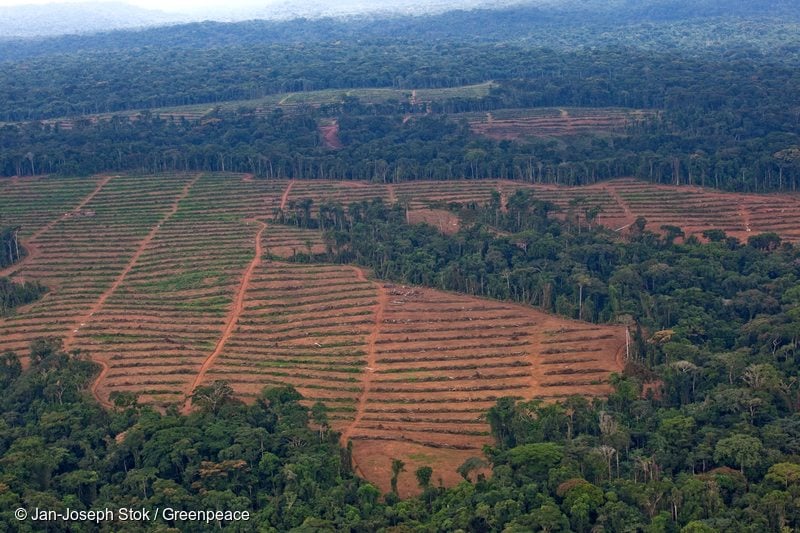Stopping illegal logging and forest exploitation in Central Africa’s threatened tropical rainforest
The vast forest of the Congo Basin is the second-largest tropical rainforest on Earth and serves as the lungs of Africa. It’s an incredibly rich and diverse ecosystem that provides food, freshwater, shelter and medicine for tens of millions of local and Indigenous Peoples and is home to critically endangered wildlife species.

Of the hundreds of mammal species discovered in the Congo Basin so far — including forest elephants, gorillas, chimpanzees, and okapis — 39 are found nowhere else on Earth. Of its estimated 10,000 plant species, 3,300 are also unique to the region.
The Congo Basin rainforest supports an astonishing range of life within its teeming rivers, swamps and savannahs but it also helps to sustain life across the whole planet. The soils and plants of the Congo Basin rainforest store incredible amounts of carbon, preventing it from being emitted into our atmosphere and fueling climate change. Forests alone in the Democratic Republic of the Congo (DRC) are estimated to be the fourth-largest terrestrial carbon reservoir in the world.
Despite all this, the Congo Basin’s forests are under threat.
Land Grabbing and Industrial Agriculture
In recent years, investors from around the world have been focusing heavily on Africa in efforts to exploit the continent’s rich natural resources, often at the expense of local communities and the environment.
The trend of buying or leasing large areas of land in Africa to extract resources for export has been termed “land-grabbing” due to the speed and scale at which it’s taking place, as well as the opaque nature of some of the land deals that have been negotiated.
The UN has warned that these deals could severely undermine food security, hamper long-term economic development, and lead to the loss of important ecosystems.
The Congo Basin is the target of several international industrial-scale agriculture developers — including palm oil and rubber — who are looking to cash in on new operations in Africa. These plantations, however, often fuel wide-scale deforestation and spark social conflict.

Aerial image of forest clearance for a oil palm nursery managed by Herakles Farms.
Illegal Logging
Unsustainable and illegal logging in the Congo Basin forest — by both big and small companies — is leading to deforestation, destruction of wildlife habitat, diminished resilience to climate change, and damaging local communities.
For too long, valuable trees have been illegally cut for timber and exported for products like furniture and flooring. Currently, illegal timber cut in the Congo Basin is being sent around the world, including the European Union member states, the United States, and increasingly to China.
Both the United States and the EU have banned importing illegal timber. The Lacey Act and EU Timber Regulation respectively are beginning to be enforced and changing how companies assess the timber they are buying. However, as long as illegal timber can flow into China, be turned into finished consumer goods and then resold on the global market, the incentive to illegally log the Congo Basin forest will remain.
